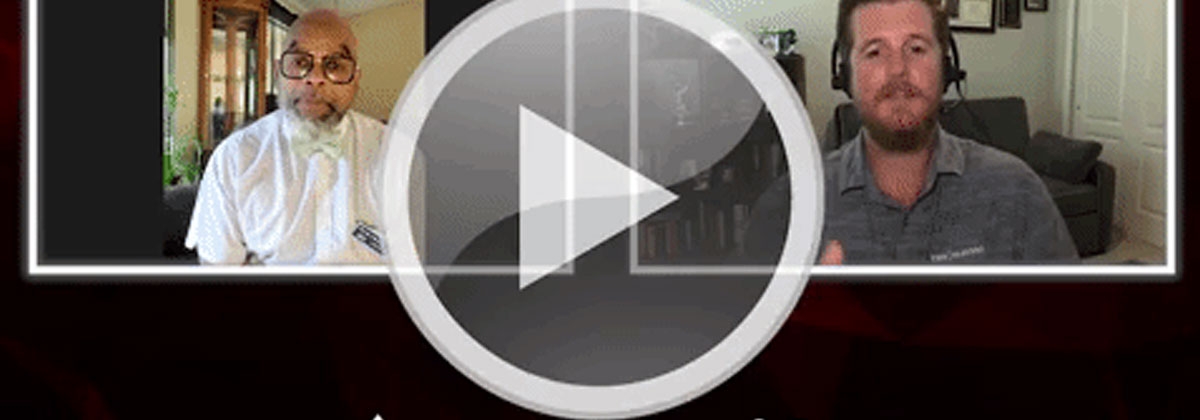Real Estate Marketing Materials That Make A Successful Agent



You know that you’re in the business of sales and marketing, but what exactly are qualified real estate leads? It’s best to think of your leads as future clients. Your goal is to find people who are going to be receptive to your services and then turn them into clients.
Lead generation has always been a bit different in the real estate industry. This is because it’s very personable. People want to be connected with someone they trust when buying a property. That means that lead generation isn’t just about selling, it’s about building relationships and creating trust.
Becoming an authority on real estate is one of the best ways for agents to generate leads. Your status as an expert will help you attract new clients who are looking for someone with your experience level.
In this article, we’ll go over the different ways you can build this authority.

Whether you’re just starting out as a new real estate agent or you’ve already had your real estate license for a while, it’s important to have a repertoire of lead generation tips to make your job easier. New agents hunting for new clients may find this helpful, but veterans of the realty market may find some good reminders here too.
Real estate agents are often self-employed and spend most of their working hours interacting with clients and customers, showing homes, writing contracts, and looking at listings. They need to be equipped with the right strategies to be successful in their career.
In this article, we’ll look at some great real estate agent tips that can help you be successful in your career.
Looking to build trust with homebuyers and sellers in your real estate market? Authorify can help you build authority by setting you up with your very own digital books or printed books!

Welcome to your guide to getting your real estate license. We’re here with our handy steps and a handful of tips to help you on your way.
But before we dive in, let’s talk a little bit more about what it means to be a real estate agent. For starters, it’s important that you know this position is more than just passing the state licensing exam.
Consider that nobody wants to hire an agent who’s not prepared for the job and hasn’t put in the time and effort to become an expert in their field. You need expertise, drive, enthusiasm, and above all else, talent for real estate sales if you want to make it as an agent.
A great real estate agent is equal parts salesperson and advisor: someone who knows when to listen and when it’s time for action, someone who can read between the lines, someone who can identify needs before they’re fully realized by their client, and someone who makes clients feel like they’re being heard without losing sight of their own goals or the client’s dream home.
Whether you’re looking to make it in your first year as an agent or you’re just starting out as a new real estate agent, this guide is here to help. Keep reading to know what the real estate industry expects of you and how you can get started.

Real estate agents act as liaisons between buyers and sellers in the real estate market. They help to set up showings and open houses, connect sellers with potential buyers, and negotiate on behalf of their clients.
A large part of an agent’s job is to help clients feel comfortable making decisions that will have a major impact on their lives. In order to do that well, agents need to be able to listen to their clients’ needs and wants, understand their goals, and guide them toward the best decisions.
To attract clients in the first place, effective real estate marketing is absolutely integral. The real estate industry is all about fostering connections between people.
In this article, we will cover 10 solid real estate marketing tactics and marketing tips you can use this year to keep clients coming.
Keep reading to get started!

Just like there’s no universal definition for success, there is also no universal timeline for achieving it. Rather than focusing on the timeline ahead, as a new agent that’s just obtained a license, you should focus on your continuing education in the field and the things you can do to grow your real estate leads.
Rather, you should focus on things you can do from day one to become successful.
In this article, we uncover five essential tips that successful real estate professionals use to grow their status in the realtor field, be it through online presence or in-person marketing.
First, it’s difficult to define what ‘success’ means in the real estate industry. There is no one path to success: what works for one agent might not work for another.
But as a newly licensed real estate broker, here are things you can do from day one to get your small business known among homebuyers and sellers.

“Two days ago, I received a call from the wife who had indicated that they had read the entire book and they were super excited and wanted to know if I would consider them to be my clients.”
Maurice Brooks, a former college instructor, first obtained his real estate license in 1988, back when he says “everything was done on paper.”
Maurice became a designated broker for about 10 years, then became a federal contractor.
“So I kind of left real estate for a period of time, but it’s always been my passion,” he says. “So at the beginning of the pandemic, when all the colleges and everything shut down, I needed to do something. And so to me, I figured that this was a good time for me to renew my passion for real estate.”
Maurice was drawn to Authorify because of his background in academia and his understanding that being a published author would give him an edge over his competition.

“So I’m totally convinced that the book is key for anybody — for all the reasons your founders knew.”
That’s according to Bob Sheasby, an agent in Brevard County, Fla., near Cape Canaveral, who got his start in real estate after working through a transaction of his own.
After splitting his time between New York and Miami for many years, Bob decided to invest in a ski property in Colorado, where his brother also lived.
“I decided I wanted to buy some real estate,” Bob says. “I closed on a property from my Manhattan apartment, a one-bedroom apartment, using a lot of FedEx with a bank in Texas, a Realtor in Denver and a condo up in Bale, Colo… And I thought, ‘This is fun. I liked this.’
“But I recognized it as a process, and if you know the steps, you can short circuit the steps or get three done at one time instead of back and forth, back and forth, back and forth. When I closed, they said, ‘You can’t do that. We’ve never done it. It always takes six weeks.’

Cynthia Tant was a college professor before she entered the real estate industry 25 years ago. At the time, she had already been investing in real estate for five years.
“I’m a recovering academic, if you want to think of it like that. … I started the investment role, became an agent, and became a broker on my own. I’ve had my company now for about 15 years. I started with a small boutique brokerage and transitioned to a long-term rental management company, now to a short-term rental management company and investment company. I grouped them all together.”
Cynthia is based in Pensacola, Fla., so she works with a lot of vacation properties.
“So when I have somebody who purchases a home, that would be their long-term rental or short-term rental, I can also provide the rehab part of it and also provide the management part of it so they can do a one-stop shop.
“One thing — which was a byproduct of Airbnb, which I really wasn’t even thinking about — is people coming into town as guests then deciding they want to buy something here. So now I advertise upfront that I do sell houses for Airbnb. And that has brought me in about a dozen extra sales per year, just from guests coming in here.”
She leaves out a copy of her book and tells people they can take it for free, then replaces it when a new person comes to stay. This is just one of the many marketing techniques Cynthia uses to promote her companies.
“When I sell or market for investors, they come to me because they know I’ve been working on it for several years. Apart from this, I’ve also held seminars, a regular teacher route when we could actually have physical in-person seminars — self-directed IRA, 1031 Tax Exchange.”
PROVIDING A SENSE OF AUTHORITY
Cynthia believes that to gain Airbnb investors’ confidence and trust, it is important to project a reputable image. She does that through pamphlets and informational packets, then solidifies her reputation using her Authorify books.
“I have somebody who reserved a place just now and said she’s coming to town and is interested in Airbnbs. She asked me if I know a Realtor. I then asked her if she read the description in my Authorify book because it says I’m a Realtor. I have a digital version of the ‘How to Sell,’ which is the first one I shared with people and utilized to get to them. Because of it, I am giving them a sense of authority where they can see that I am serious about my business and what I can offer. So the PhD doesn’t hurt either.”
She uses her books for lead generation and also for social media advertising.
“I like lead generation, putting it into all the stuff I have — social media and everything.
“There’s a Facebook group to communicate and work with investors. As far as working with investors, I am a member of large investment groups and an all-women’s investment group with 3,000 members. We’re sharing a lot from an investor’s standpoint. They contact me because of the experience I’m willing to share. I’ve tried to write books before, but I don’t have the time, so I’d rather share what I know with people because in the long run, if they visit Pensacola and either come for Airbnb or want to purchase something, it’s fine with me.”
MAKING THE MOST OF HER KNOWLEDGE
Cynthia believes her experience, knowledge, and confidence attract investors to her company.
“I would say probably 90 percent of Realtors out there are not investors. The investment route is a different world. Numbers are the big key. Depending on the market, like us in Pensacola, we can still be reasonable. I tell somebody I have a $50,000 house to sell, and they say, ‘What are you talking about? I can’t even get a driveway for $50,000!’ The market’s different. Since I’m in a Facebook group where I’m able to share those ideas with people, we were able to run the numbers on how much it’s going to cost you as far as your rehab.
“I’m working with an investor right now who has 65 properties, and he’s starting to sell them off. We’re doing six at a time. They’re lower-end, but for this area of town, the $65,000 or $75,000 house with a $1,000 rental income is a piece of cake. It’s a no brainer.”
INVESTING IN PROPERTY MANAGEMENT
To give her investors peace of mind, Cynthia suggests they hire a property manager. She believes the additional cost is worth the reduced stress and anxiety.
“(Some people) don’t want to deal with property management. ‘Oh, I’ve tried it before, I lost money, I had bad tenants, blah, blah, blah.’ So if you take that off their hands — same thing with the Airbnb — how do you get it clean? How do you take that off their hands? And you show how by putting it in their game plan or their portfolio that 10% is worth your peace of mind for a rental property management fee.”
According to Cynthia, the role of a real estate professional is to take some of the burden off of investors. Establishing trust is all about being genuine and prioritizing the investor’s needs.
“As long as you keep investors happy, they keep you happy. So they’ll buy in multiples. Some of my investors have 65 properties, and others have 25 properties.”

ESTABLISHING A TEAM
As cliché as it sounds, the saying “no man is an island” is a universal truth, even in a competitive real estate environment. One can never excel or move forward without the help of teammates and networks.
“When an investor comes to sell their property, they have a different mindset than a first-time buyer or someone looking for a second family home. If you have the experience and you are displaying or giving that to the people you’re working with, they’re going to come back and work with you.
“It has to make sense to them financially. And if you don’t make that — and I made a couple of goofball moves, which happened when I first got started, but I experimented on myself. So I did a lot with that myself, but having that experience and displaying that, or giving that to the person that you’re working with, they’re going to come back all the time and just work with you.”
Cynthia says it’s also crucial to build up a portfolio of qualified contractors to recommend to anyone you’re working with to further cement yourself as a valuable resource.
““I’m working with mine, but I do share them with other people — general contractors, insurance being a whole shebang that you have to be involved with.
“Because if someone needs repair work done from a home inspection that they’ve done for the seller, then I already know people where I can say, ‘OK, we can get this done. Now we can do a pre-inspection report. So the seller already has everything repaired or most of it before we even put it on the market. And then that way they can get more money for it without the buyer coming in and wanting a $500 repair that’ll cost you $50 from the handyman.”
“We try to look at it from the seller standpoint, too. When we list it, we ensure it goes to the market with little repairs.”
